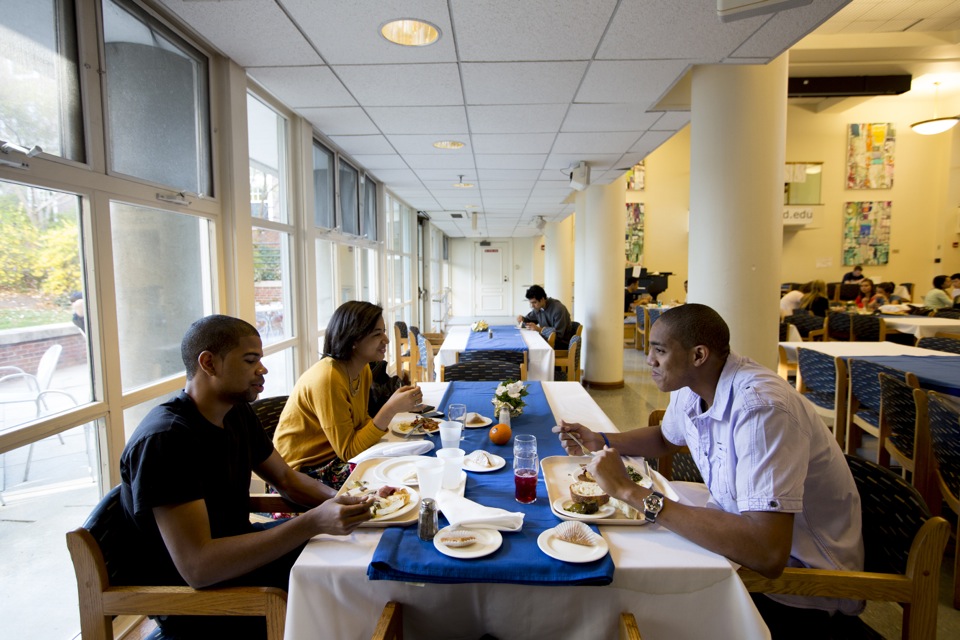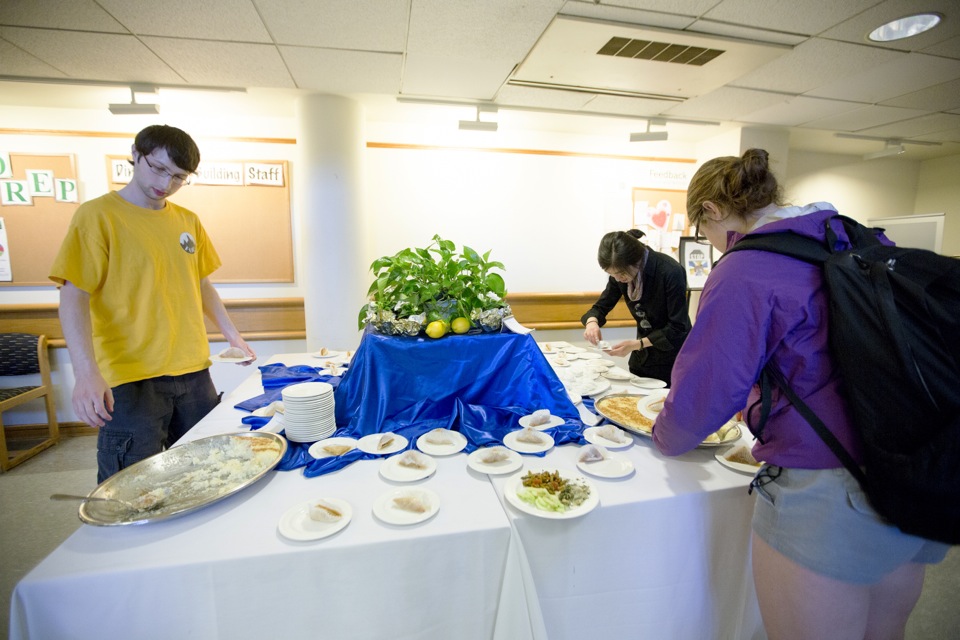Inside Pforzheimer House: GreekFest
Where succulent lamb signifies spring’s arrival
On the patio at Pforzheimer House, facing the lively Radcliffe Quad, the odd sight of a lamb roasting on a spit grabbed passersby’s attention. For the fourth consecutive year, the PfoHo dining services staff helped students and staff celebrate GreekFest by creating a delicious feast on May 1. In addition to the lamb, they cooked spanakopita, authentic Greek salad, a mezze bar of appetizers, baklava, and rice pudding. The celebration falls the week before Greek Orthodox Easter, celebrated this year on May 5.
Students filled plates and sat at tables covered in blue and white tablecloths to pay homage to the Greek flag. Outside, the warm weather and the greening of the Quad signaled spring’s return.
Pforzheimer House Master Nicholas Christakis explained in an email to students what lamb in the spring signifies to Greek culture: “The idea behind a lamb roast is to celebrate the annual greening of the countryside with a ritual sacrifice of a new lamb. For millennia, the Greek diet was (and still is) organized around religious festivals, many of which involve fasting and the complete absence of dairy and meat for weeks at a time. In fact, some have hypothesized that the unusually high life expectancy of the Greek people comes in part from these periodic fasts from animal products. So, the traditional lamb roast signifies the coming of spring and an expression of gratitude for nature’s abundance.”













